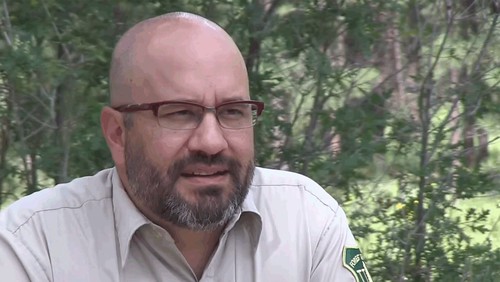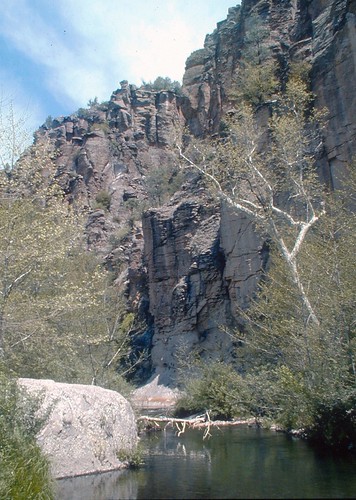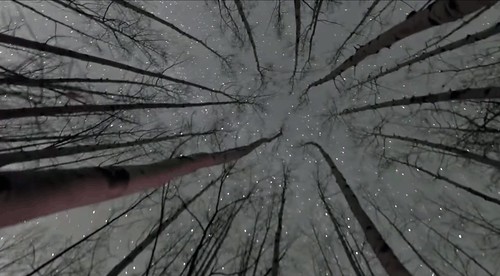
For most of his 16 years with the U.S. Forest Service, Dave Warnack spent them boots-on-the-ground. That’s to say that he does not just talk the talk.
“Wilderness will be the ultimate index by which I measure my status, progress and overall place in the world,” Warnack says in the film “Wilderness: The Ultimate Yardstick. “I say this because when you enter a wilderness alone, unsupported, you quickly realize that the wilderness doesn’t care about you. It doesn’t care about the grades you got in school. It doesn’t care about your medals, your degrees or the size of your salary. The first time you measure yourself by the yardstick of wilderness, you may quickly find that you are, indeed, very small and perhaps inconsequential.”
Warnack’s thoughtful words are captured in the 5-minute video shot by Melissa Dean, who works in the Southwest Regional Office in Albuquerque, New Mexico, and Loretta Benavidez, who works on the Lincoln National Forest with Warnack.
Raised in Silver City, New Mexico, at the edge of the 3.3 million-acre Gila National Forest, Warnack recently talked about growing up near such available and vast open space.
“That’s a lot of country to get lost in, and that was part of our recreation growing up: hiking, fishing, hunting in the woods. Gosh, I feel fortunate having that experience,” he said. “I gained a lot of my appreciation for the outdoors in general from my dad. But then I gained a deeper appreciation for the wilderness and the Wilderness Act through my job.”
When it was time to leave home Warnack decided on an English degree to pave the path to law school. But the land kept luring him back. College summers spent on a trail crew began to guide him toward his future. He has since spent the majority of his career in outdoor work.
Warnack remembers the moment when he found the answer to the question, “What is wilderness anyway?”
“We all go through tough times at various points in our lives. I was going through a tough time. It was about two in the morning, and I just decided to go fishing,” he said.

He knew his father and grandfather were roughly seven miles up the Gila River inside the Gila Wilderness Area. He drove to the trail head, parked and hiked until he reached their campsite at daylight.
“But I realized something. There was nothing I was really afraid of out in the woods,” he said. “All of the things I felt could get me were really in society. Out in the natural world, out there, I felt I belonged. The rest of the day, we caught fish and had a nice day. It put things in perspective for me.”
He now hopes his lessons will be realized by his children. He describes his oldest child, 13, a typical all-American teen who is in his own world, distancing himself from his siblings and not too keen on hanging around with dad, Warnack said with a chuckle.
“But when we go out into the woods, the biggest joy I have is that he is no longer that typical teenager,” Warnack said. “He enjoys being out there. He jumps through the streams. He interacts with his siblings. He is happy. There is great joy there.”
But he also notices something else. He watches his young children – ages 9 and 11 - take the lead on the family hikes.
“They don’t always do that in everyday life. Out there, they are the explorers,” he said. “They are not shielded or protected the way they are at home.”
The distance between many children and the great outdoors is wide. Roughly 80 percent of the population lives in urban areas often far from wilderness areas.
“Young people, children, don’t differentiate between the Bob Marshall Wilderness and their local hiking trail or the edge of town,” Warnack said. “The important thing, really, is getting them outside. They’ll protest. My kids even protest. But as soon as you get them out there, they love it and the game always changes. You say you are going for a hike, but that’s not the only thing that happens. The important thing is to make the effort to get out and let it happen naturally from there.”
In the “Ultimate Yardstick,” when Warnack talks about perhaps feeling very small in the wilderness, he continues with another thought.
“But as you spend more time out there; as you acclimate to the solitude, the quiet,” he said. “As you rise to the physical and mental challenges that you can only encounter in wild country, you find that perhaps you are not quite as small or inconsequential as you thought.”



